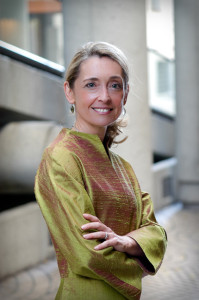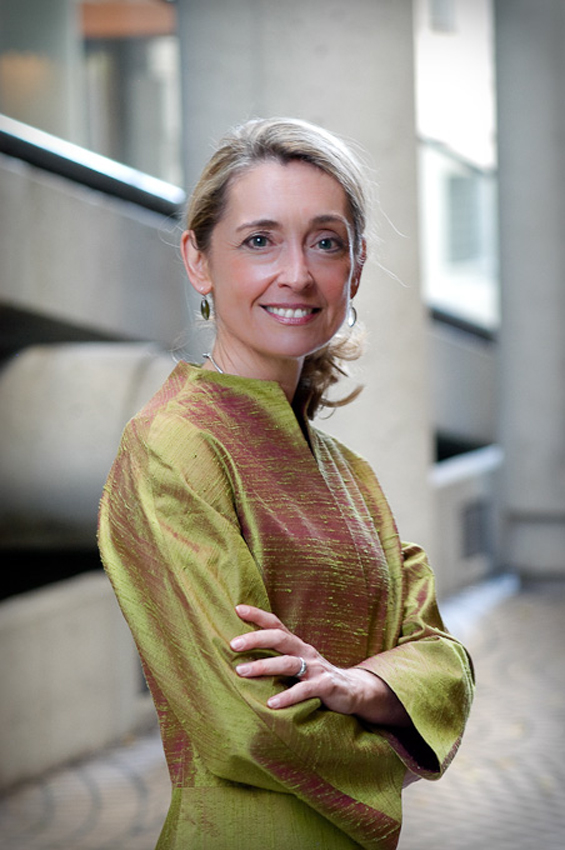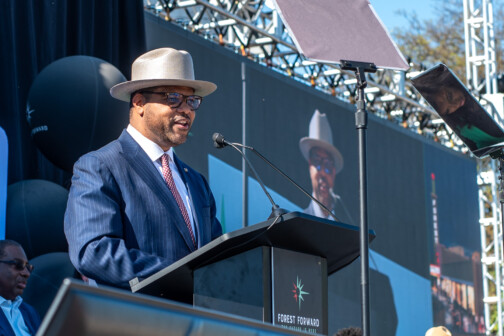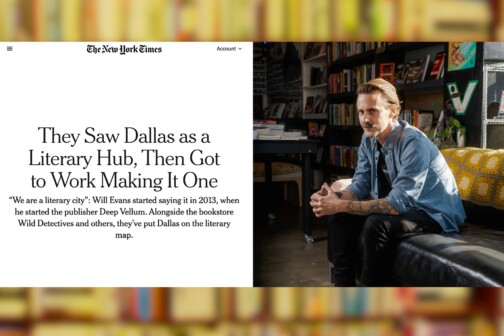Picture a classical conductor in front of an orchestra. What image comes to mind? A tuxedo? A baton? A confident bow? Maybe some wild, unruly hair, bouncing with rhythmic jerks of the head?
Regardless of the details, more than likely the image you’ve conjured in your mind’s eye is that of a man. And for good reason, because more than likely, the vast majority of the conductors you’ve seen either in person or depicted in popular culture are men. Statistics back up your experience. Google “women” and “conducting” and you’ll find article after depressing article confirming the fact that when it comes to top conducting gigs in the U.S. and Europe, women are sorely underrepresented. So why is this particular glass ceiling so very thick?
I posed that question last week to Dallas Opera General Director and CEO Keith Cerny. “It’s complicated,” he told me, “and a question that I don’t have all the answers to by any means, but it is clear that there are a lot of institutional barriers for women conductors breaking through into the real professional circuit. There’s been a lot of headway made on admitting women to top graduate programs and helping them get started in their careers, but I still see a lot getting diverted into secondary conducting opportunities and never really being able to break through. Some of this has to do with the way in which they promote themselves, and some of this has to do with the fact that, for the audience and even the orchestral musicians, there’s unfortunately still an element of unfamiliarity about women conducting. Orchestras are known for testing conductors, men and women, and its very important for a young conductor to be able to come in and get through that moment.”
Cerny has been thinking about issues of gender inequality for a long time. Growing up as the son of a physics and chemistry professor in Berkeley, CA, he observed first-hand a not-too-distant era in academia in which it was a rarity for women to be admitted to top PhD programs. As a student at Harvard Business School between 1989 and 1991, Cerny watched his female colleagues encounter similar barriers as they applied for jobs in traditionally male-dominated fields like finance and law. In his own career as a consultant in Europe, he witnessed the same issues. You get the sense when talking with him that, regardless of where Cerny’s career had taken him, he would have worked to tackle this issue. As it so happens, he found himself at the helm of an opera company. “Because of my leadership role at an important opera company in America,” he said, “I think this is a really important area [for us] to do our part.”
Which is why, last week, The Dallas Opera announced a new initiative: The Institute for Women Conductors, or IWC, is a unique residential program that will bring six women conductors under the age of 40 to Dallas for an intensive nine days of master classes, seminars, and, of course, conducting. Attendees will work closely with TDO principal guest conductor Nicole Paiement and music director Emmanuel Villaume, as well as take a media refresher course and participate in networking opportunities. A final concert at the end of the residency will feature each of the institute’s participants conducting professional singers and a full orchestra on stage at the Winspear Opera House. In the future, Cerny sees this program expanding to a full two weeks and an additional alumni networking event each summer.

When I spoke with Cerny last week, less than 48 hours after the IWC was announced, TDO had already received over a dozen applications from women around the world, including a concertmaster at a major German opera house, a student at an esteemed conducting program in the U.S., and a principal conductor from a smaller European opera house.
Part of Cerny’s plan is to use this program to develop a database of young, female talent and connect women with each other, and with artist managers and directors of other opera companies or symphonies. “It’s difficult to succeed in the opera business without a good manager,” Cerny explained. “I anticipate that some of these conductors will have managers and some will not. One of the things I’m looking forward to talking to the participants about is how to break through some of the barriers there, how to make themselves an appealing conductor for a top-tier manager to take on.”
“Working with a lot of artist managers as I do,” Cerny continued, “very often the rosters will be almost exclusively or exclusively men. In fact, some artist managers I’m speaking with are actively looking to recruit new women for their rosters to provide a better balance.” With the IWC, Cerny and The Dallas Opera are simply connecting the dots.
While there are a very small number of programs specifically for women conductors, the IWC is the first of its kind run by an opera company. “I’m not aware of any program like this in opera specifically,” Cerny told me. “I like to set strategies and look for opportunities in the white spaces where people really haven’t done anything exactly like this before. Of course there’s plenty of room in this world for a number of these programs for young women conductors. It’s not that there’s a competitive issue. But the chance to really form something new around our core area of expertise is exciting.”
In some ways, TDO is an unlikely leader in this area. Before Nicole Paiement conducted Tod Machover’s Death and the Powers in 2014, it had been 40 years since a woman last conducted a TDO mainstage production. “Clearly,” Cerny noted, “that’s not the right model.”
With the appointment last summer of Nicole Paiement as principal guest conductor and the IWC set to bring six of the world’s best up-and-coming female conductors to Dallas every year, Cerny is setting up The Dallas Opera to not only move out of the Dark Ages, but to lead its field in encouraging equal opportunity at the podium. As it does so, the opera will likely change some entrenched preconceptions and expectations of what a conductor looks like.






